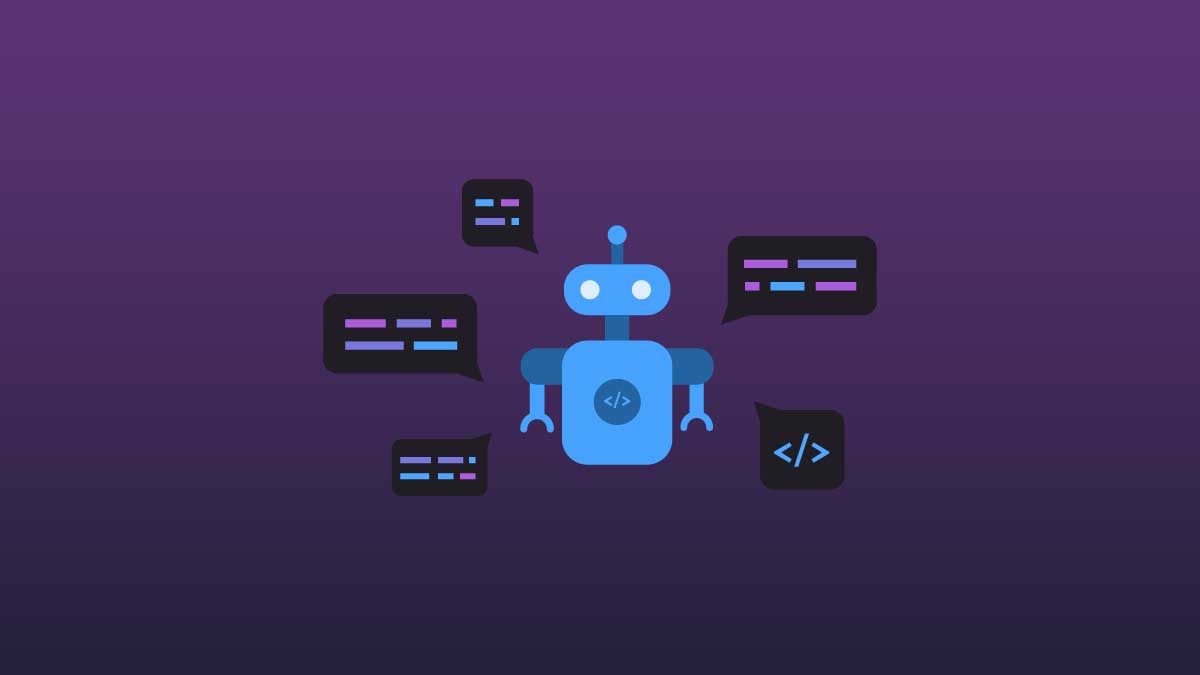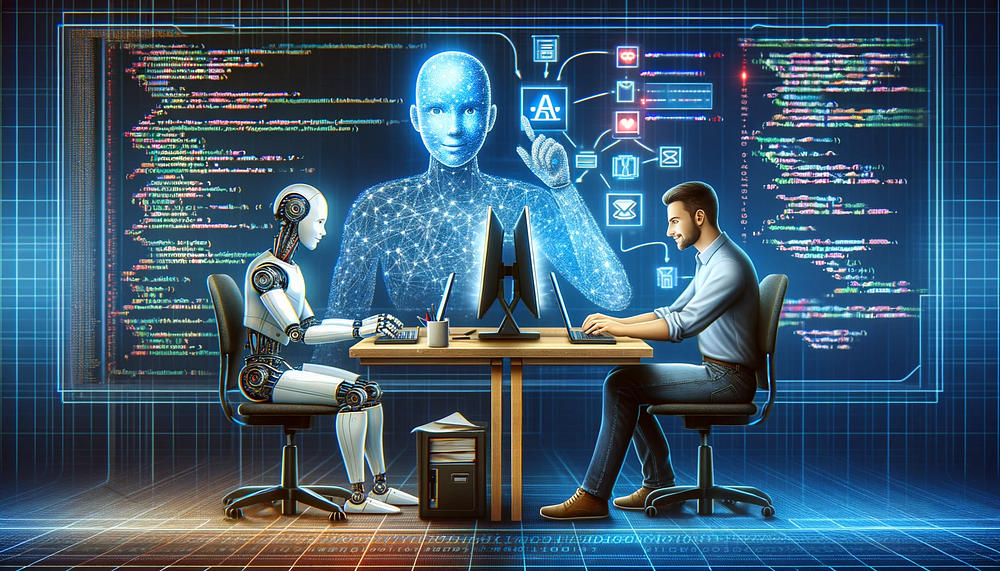Code Completion with AI: The Future of Programming
AI-driven code completion tools are revolutionizing the way developers write code, significantly improving productivity, reducing errors, and accelerating development cycles. Let’s dive into how AI-powered code completion works, the benefits it offers, and its impact on the future of programming.
1. What is AI Code Completion?
AI code completion, also known as intelligent autocompletion, is an advanced feature integrated into modern Integrated Development Environments (IDEs) and text editors. These tools use machine learning models, particularly natural language processing (NLP) and deep learning, to predict and suggest code as the developer types.
While traditional code autocompletion (e.g., suggesting variable names, function signatures) is rule-based, AI-driven code completion goes a step further by using patterns and context from the codebase to generate more sophisticated and relevant suggestions.
2. How AI Code Completion Works
AI code completion tools are powered by advanced machine learning models, often trained on vast amounts of source code from repositories, documentation, and code-related data. These tools typically use one or more of the following approaches:
- Language Models: AI models, such as GPT-3, Codex, and others, are trained on millions of lines of code and are able to understand context, syntax, and common patterns across programming languages.
- Context Awareness: These tools don’t just suggest random completions; they analyze the surrounding code, imported libraries, functions, and even variable names to make suggestions that are contextually relevant.
- Code Snippets: Based on common usage patterns, AI tools can suggest entire code blocks or frequently-used patterns (e.g., loops, conditionals, or function implementations).
- Error Detection and Fixing: Some tools also suggest potential fixes for errors or offer improvements to optimize the code.
RELATED ARTICLE
3. Popular AI Code Completion Tools

Here are some of the most widely used AI-driven code completion tools that are changing how developers code:
a. GitHub Copilot
- Powered by: OpenAI Codex (based on GPT-3).
- Features: GitHub Copilot works directly within code editors like Visual Studio Code, offering intelligent code completions, entire function suggestions, and even documentation for APIs.
- Advantages:
- Suggests entire lines of code or complete functions based on minimal input.
- Offers suggestions across multiple languages, including Python, JavaScript, TypeScript, Ruby, and Go.
- Contextual suggestions based on previous lines of code or function signatures.
b. Tabnine
- Powered by: GPT-3 and custom-trained models for specific codebases.
- Features: Tabnine can integrate with various IDEs (like VS Code, IntelliJ, and Sublime Text) and is designed to improve productivity with AI code completion. It offers both personal and team-based code suggestions, providing the option to train on private code repositories.
- Advantages:
- AI-driven suggestions tailored to your coding style and organization’s codebase.
- Can be used with multiple languages and frameworks.
- Offers local, cloud, and hybrid models to suit different privacy needs.
c. IntelliCode (by Microsoft)
- Powered by: Deep learning models trained on a vast amount of open-source code.
- Features: Available for Visual Studio and Visual Studio Code, IntelliCode provides intelligent code completions based on context and code patterns seen in the developer’s own code as well as the wider open-source community.
- Advantages:
- It understands coding conventions and helps maintain consistent code style.
- Suggests optimizations and refactorings.
- Integrates deeply with Microsoft’s ecosystem and supports multiple languages (e.g., C#, JavaScript, Python).
d. Kite
- Powered by: A machine learning model trained on open-source code.
- Features: Kite provides AI-powered completions and suggestions for Python (and a few other languages) and integrates with IDEs like VS Code, Atom, Sublime Text, and PyCharm.
- Advantages:
- Provides intelligent suggestions based on the code context.
- Helps with documentation generation, offering useful information for functions and APIs.
- Supports various refactoring suggestions.
4. Benefits of AI Code Completion

AI-powered code completion offers several key advantages that make it a valuable tool for developers:
a. Increased Productivity
AI can automatically suggest code as you type, reducing the need to manually search for syntax, API documentation, or code examples. This not only speeds up coding but also minimizes distractions, allowing developers to focus on higher-level problem-solving.
b. Reduced Syntax Errors
AI tools help catch common syntax mistakes or suggest corrections for misused functions and variables. As a result, you spend less time debugging and more time building features.
c. Context-Aware Suggestions
Unlike traditional autocompletion, which offers generic completions, AI-powered tools can offer contextually relevant suggestions that adapt based on the current code structure, libraries in use, and even variable names.
d. Learning and Skill Improvement
For novice programmers, AI code completion acts as a tutor, suggesting correct code patterns and practices. For experienced developers, it can save time on repetitive tasks, allowing them to focus on more complex and creative coding challenges.
e. Cross-Language Support
AI tools often support multiple languages, allowing you to switch between languages seamlessly while still getting intelligent code completions. This is particularly useful for full-stack development or when working with a polyglot codebase.
f. Collaboration and Code Quality
In team environments, AI tools like Tabnine or GitHub Copilot can adapt to team-specific coding conventions, ensuring more consistent code quality and helping new team members align with existing codebases more easily.
RELATED ARTICLE
5. The Impact on the Future of Programming
As AI code completion tools continue to evolve, they will likely have a profound impact on the programming landscape:
a. Automating Repetitive Tasks
With the rise of AI-driven tools, much of the boilerplate coding (like basic CRUD operations, syntax for standard algorithms, and error handling) can be automated. This will allow developers to focus on more innovative and complex tasks, such as system architecture, user experience, and advanced algorithms.
b. Lowering the Barrier to Entry
For beginners, AI code completion tools make it easier to learn programming by offering instant feedback and suggestions. Even if you’re unfamiliar with a specific syntax or API, the tool can guide you through it. This might lead to an increase in the number of people learning to code and working in tech.
c. Enhancing Collaboration
AI-powered code completion tools can help standardize code across teams, automatically enforcing style guidelines, naming conventions, and best practices. This reduces friction in team collaboration and improves the maintainability of the codebase.
d. Code Generation and Auto-Refactoring
We may eventually see AI systems that can generate entire programs from high-level specifications, or automatically refactor code for performance or readability improvements. This could potentially reduce the need for manual debugging and code reviews.
e. Ethical and Security Implications
While AI code completion tools improve productivity, there are concerns about their potential to introduce bugs or security vulnerabilities, particularly if AI-generated code has not been properly vetted. Additionally, there are ethical questions around proprietary codebases and whether AI tools might inadvertently suggest or replicate copyrighted code. As AI continues to shape the programming industry, these challenges will need to be addressed.
6. Challenges and Limitations
While AI-driven code completion tools are powerful, they are not perfect. Here are a few challenges:
- Code Quality: AI tools may suggest inefficient or incorrect code if not properly trained or if they don’t fully understand the broader context of a project.
- Learning Curve: While these tools are designed to assist developers, they may require some adjustment, especially for developers who are not used to receiving frequent suggestions.
- Privacy and Security: Using AI tools that are connected to the cloud may raise concerns about privacy, as proprietary code could potentially be exposed to external servers.
7. Conclusion: A Bright Future for Developers
AI code completion is undoubtedly shaping the future of programming by making coding faster, more efficient, and less error-prone. As these tools continue to evolve, we can expect to see deeper integration of AI in the software development lifecycle, from design to deployment. While it’s important to remain mindful of potential challenges, the overall trend points toward a future where developers spend less time writing repetitive code and more time solving complex problems and creating innovative software.
If you’re curious about trying AI-powered code completion yourself, tools like GitHub Copilot, Tabnine, and Kite are good places to start. They’ll make your coding experience smoother, faster, and more enjoyable!

